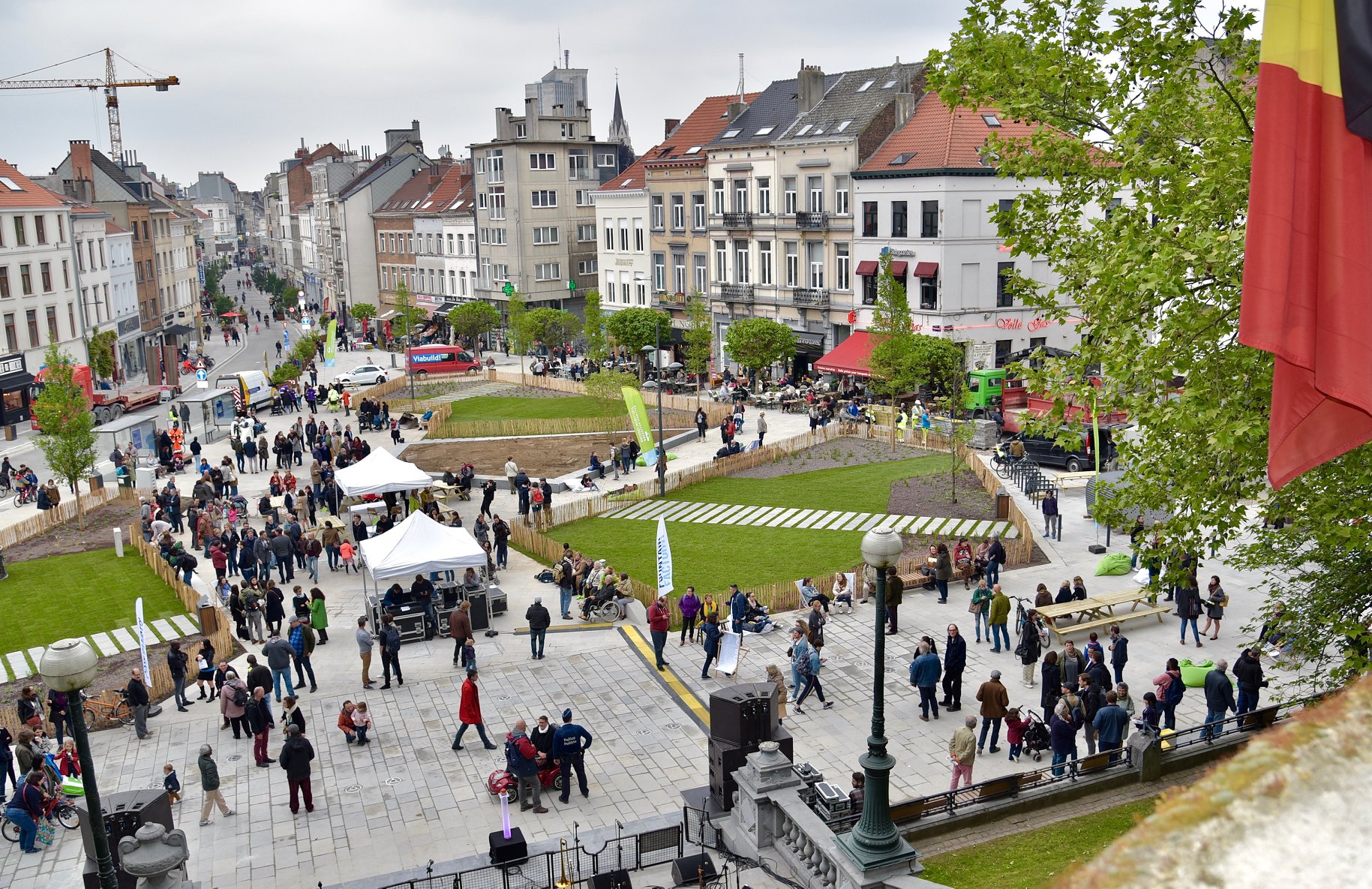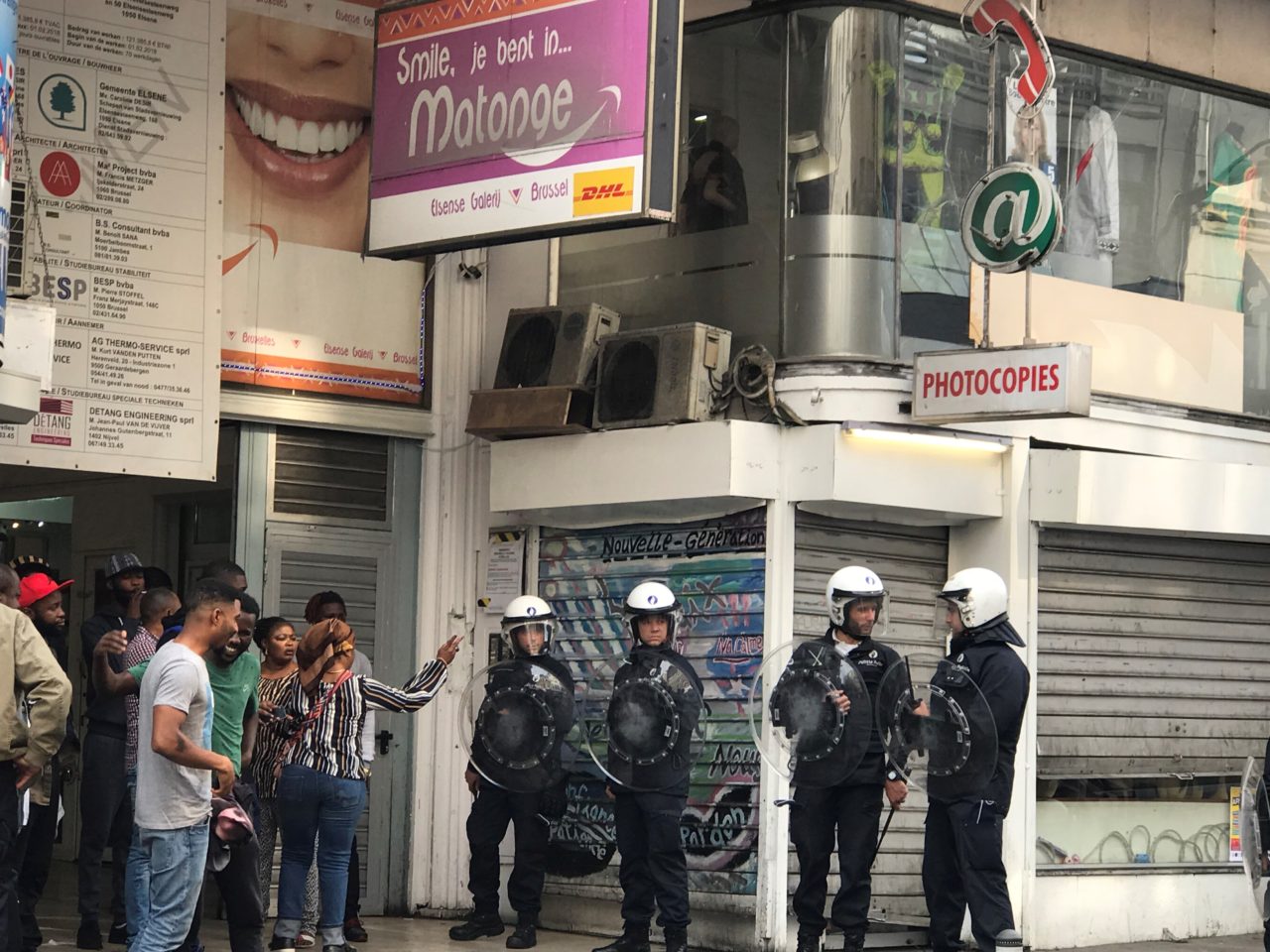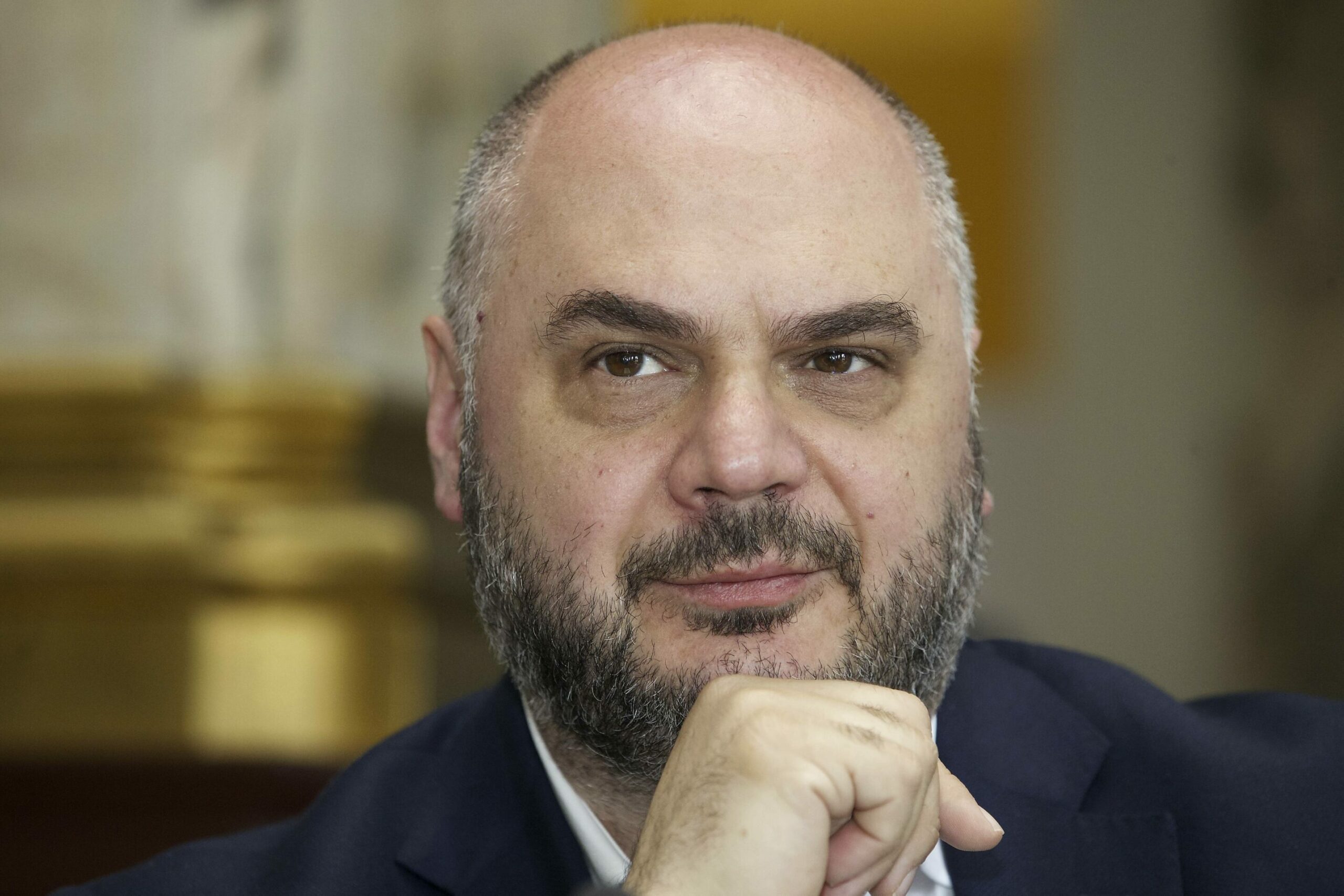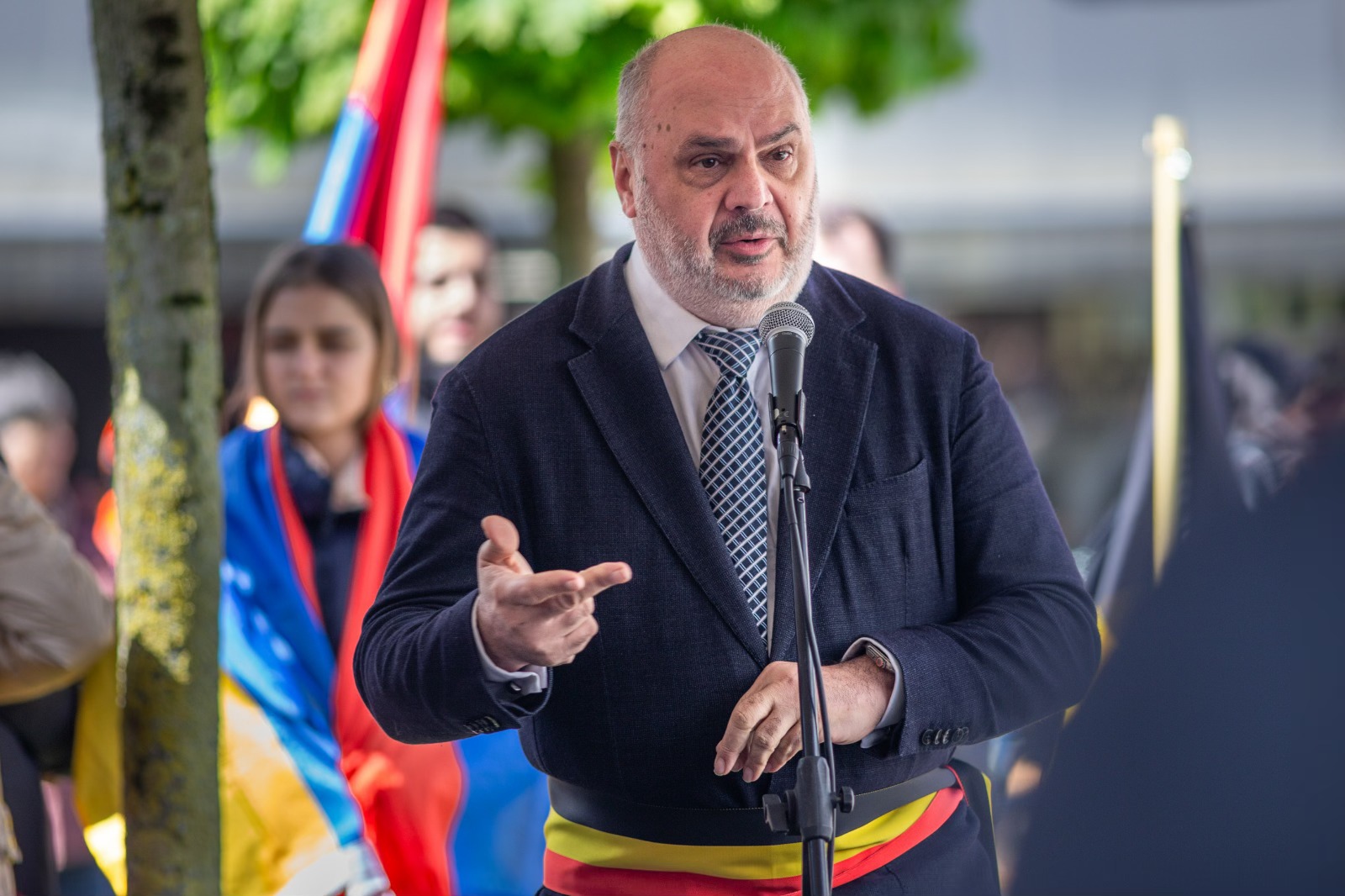"What makes people love Ixelles?" says its smiling mayor, Christos Doulkeridis. "It's when you know your baker, your grocer and your neighbours. It's when you know the people around you."
Running for re-election in the October local elections, Doulkeridis recognises that Ixelles is known for being a diverse, cosmopolitan and even a hipster commune – a reputation borne out by statistics: it has the second highest proportion of non-Belgians (50.2%, only Etterbeek has more) in the country.
He is proud that so many cultures and communities live side-by-side in the commune, noting that the diversity means there is no dominant culture. "No one can say that Ixelles is 'mine' or 'my group'. No social class can say that it belongs to them. There are working-class neighbourhoods and wealthy families all living side by side. The desire to live together and be diverse is very strong in Ixelles," he says.
He admits it has its challenges. "We shouldn't be naïve and say that multiculturalism is wonderful. It's no easy feat because we all come from different backgrounds. You have to nurture it," he says.
But Doulkeridis, from Ecolo, the francophone Green party, sees diversity as an asset rather than a liability, quoting the French philosopher Michel Serres. "'What is culture? If I have a poem and I give it to you, I don't lose the poem. I keep it and you have it too,'" he says, before adding, "When you learn something new, you don’t lose anything in the process."

Place Fernand Cocq.
He wants to nurture diversity by bringing people together, pointing to the key role played by squares like Place Fernand Cocq, Place Flagey and Place du Châtelain. "The redevelopment of public spaces is essential," he says. "They need to be meeting places, not roundabouts with vegetation or concrete and no life."
His office is in the Ixelles town hall, which overlooks Fernand Cocq. The square used to be a glorified car park, but in 2019 it was turned into a small park, with a fountain and benches. "It shouldn’t be a place for people to just pass through," he says.
He says one of his favourite roles as mayor is officiating weddings. "It's a wonderful job. There are over 170 nationalities. People who have lived together for 40 years coming to get married, and others who met six months ago. There are people who met on the other side of the world and people of all sexual orientations. For me, this heterogeneity is a fantastic asset."
Progression to politics
Doulkeridis was born in Brussels to Greek parents. They arrived in Belgium in the 1960s to work in various jobs, from the Limburg coal mines to selling Greek products in a grocery store.
The young Doulkeridis grew up in Schaerbeek and Anderlecht but moved to Ixelles in the 1990s when he worked for Ecolo as a party official. He was a federal MP from 1999 to 2009, was chair of the Brussels Francophone Parliament from 2004 and 2009 and was the State Secretary for Housing for the Brussels-Capital Region between 2009 and 2014.
Now 56, he says politics should solve local problems. "There are terrible things happening in society, so we must use all our networks, contacts and ideas to find solutions," he says. "I can't stand being told it can't be done. When you solve one problem, it's onto the next. The job never stops."
One such problem is the sense of insecurity in Matonge, the African neighbourhood near Porte de Namur which has been in the spotlight since being dubbed a "drug hotspot" by the Brussels Regional Security Council in March. It is now subject to an increased police presence, with crackdowns on drug dealing in the area.

Police in Matonge in 2018. Credit: Belga
Doulkeridis says this is one of his priorities: "Safety is fundamental. If there's no security, you can't feel at home." But he says right-wing parties are not helping with their simplistic complaints about the complex situation. "It only takes two hours to replace a dealer in the criminal network. But we're pulling out all the stops and trying to ensure that police are present in all neighbourhoods," he says.
Doulkeridis says Ecolo embodies his overall mission and values of solidarity "not just in Belgium, but also with people in other continents and future generations." But he keeps a certain distance from the party. "I need to analyse and question why I am doing something rather than simply following orders," he says.
Both Ecolo and Groen, the Flemish green party, suffered major losses in the federal and regional elections in June. Doulkeridis says this was partly due to industrial lobbying, which he says is not just happening in Belgium but also on a global level. "There is a real strategy at an international level to deny ecology, because ecology is an issue for a huge number of companies, lobbies and therefore also media outlets, which are owned by economic lobbies."
He warns about the rise of conservatism, disinformation, prejudice and populism – and that "populism is the exact opposite of ecology." And notes that priorities change. "Five years ago, hundreds of thousands of people were out on the streets warning about an ecological emergency," he says. "But any decision takes an incredible amount of time. And then when you are finally ready, the debate has changed. It's no longer the climate emergency, it's something else, like the war in Ukraine."
As for his term as mayor, Doulkeridis is proud of what he has achieved since being elected in 2018. "Ixelles has really transformed," he says. "It is exceptionally attractive. If I look at Place du Châtelain, Flagey and Saint-Boniface, many people want to invest in these areas. We are doing well culturally, economically, commercially, in terms of housing and attractiveness."

Christos Doulkeridis. Credit: Belga
But new projects and propositions don’t come without their opposition. He broadly backs the Good Move mobility plan for the Brussels region – a divisive scheme aimed at cutting road congestion – but criticises the rollout of the policy. "This debate has upset many people, and I can understand why, because it has been presented and exploited politically and electorally in a rather detestable way. It's become a caricature, but this isn't the reality."
He describes the two camps of 'Good Move vs Bad Move' as "ridiculous" because "everyone wants to breathe and have more space in which to move around." But as a policy, it is "exceptional". While Brussels has long endured monstrous traffic jams, the situation has improved, and the region is now cleaner and more breathable. "But there is still work to be done; it's difficult making change and disrupting people's habits," he says.
Focus on the future
Doulkeridis' re-election platform is grounded in both green and social issues. "Social and economic inequality are undoubtedly at the heart of my actions," he says. And he wants to keep the "conviviality" of the commune. "In a world that is increasingly selfish, dangerous and fuelled by hatred, we have to protect that. We need to protect vulnerable people who find themselves in increasingly difficult economic situations."
It is hard, Doulkeridis admits, but he says he wants to make a difference. "Kindness is losing ground," he says. "I'm everyone's mayor. Anyone can come and talk to me. I know sometimes that people don't vote for me, but I don't give a damn. That's not what's important. This will be my last mandate, but I want to continue to find solutions.”

